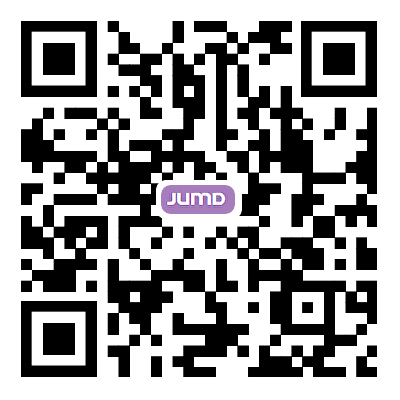Looking back on 2019 and looking forward
In my four years acting as the Editor-in-Chief (EiC) of the Journal of Unexplored Medical Data (JUMD), I have watched this journal grow and flourish along the way. Serving as the EiC for JUMD has been the most rewarding and challenging experience. JUMD is an international, peer-reviewed journal that publishes original research articles from broad areas in medical and health sciences free of charge. One of the reasons that make JUMD an outstanding journal is that it allows scientists to publish their negative as well as positive scientific results.
Scientists frequently produce negative experimental results where the desired effect is not observed or there was no difference between test and control. Such results used to be abandoned and unreported despite their potential. Not publishing negative data is considered a waste of resources and time. The JUMD editorial team believes that academic research work should be recognized and published, irrespective of its outcome. By publishing negative results, scientists will make a great deal of previously-unpublished useful data available for fellow researchers. However, it has to be said that reviewers who are willing to approve the publication of manuscripts with negative results are in short supply as well as funding bodies that reward not only researchers who publish positive results but also methodologically sound but negative academic findings. There is also a lack of academic meetings that welcome honest debate to support the publishing of failed experiment’s results.
A great deal of work has been done during the past four years when JUMD swiftly expanded and engaged thousands of readers. As 2019 marches to a close, I want to offer some highlights of the journal’s achievements during the past year. Probably the most exciting accomplishment in 2019 was publishing a Special Issue titled “Caring for Patients with Breast Cancer” that contains a collection of high-impact manuscripts focusing on the clinical management of breast cancer with special attention to disparities in breast cancer care, quality of life, financial impact of cancer care, and survivorship issues. As a leader in breast cancer outcomes research, the Guest Editor Dr. Kandace P. McGuire, M.D., chief of breast surgery and surgical leader of the Breast Health Program at Virginia Commonwealth University Massey Cancer Center led the publishing of this successful Special Issue.
In this particular Special Issue, Dmytro Lytkin and Tatiana Briukhanova from the University of Pharmacy, Ukraine, investigated the effect of exemestane on the adrenal hormone’s stability in female hamsters. Their results suggest that exemestane disturbs the mineral metabolism in the animals (that was under experimental diet-induced metabolic syndrome) through increased production of cortisol and aldosterone. The experimental data of their manuscript titled “Exemestane Leads to Hormone-associated Ascites in Female Hamsters with Experimental Metabolic Syndrome” bring about the requirement for additional pre-clinical and clinical studies of exemestane safety specially in females with mineral and metabolic abnormalities.
Prescribed opioids are routinely used for many postoperative patients. However, these medications have daunting adverse effects on human body functions. In an interesting review, Melissa Hite and Andrea M. Abbott from the Medical University of South Carolina summarize a literature review of studies that evaluate current prescribing practices for peri-operative narcotic use and strategies to reduce opioid abuse in breast cancer surgery patients. Their review titled “Narcotics and Breast Surgery: A review of Current Literature” is indeed of interest to the scientific audience and keeps them up to date.
Nausea and vomiting are the most common side effects experienced by cancer patients receiving chemotherapy with being female considered a high-risk factor when predicting chemotherapy induced nausea. Evaluation of nausea and vomiting risk represents a major focal point when trying to reduce female patient burdens associated with chemotherapy. In a pilot study titled “The Quest for Reliable Prediction of Chemotherapy-induced Delayed Nausea Among Breast Cancer Patients” Dillon D. McCourt and U. Margaretha Wallon from rgw Lankenau Institute for Medical Research Wynnewood, PA, USA tested a blood-based assay - rooted in pathways involved in the glutathione recycling - for its ability to predict chemotherapy-induced nausea in breast cancer patients. Their predictive assay has the potential of helping the early identification of patients who are at risk and more susceptible to treatment-related nausea after treatment with chemotherapy.
Treatment of breast cancer includes surgery, chemotherapy, endocrine therapy, and radiation therapy. While management of breast cancer has improved, adverse events related to these treatments such as lymphedema can be a challenge to both patients and clinicians. Approximately one in six women treated for breast cancer will develop lymphedema some time after diagnosis and treatment. Kareen Ayre and Catherine Parker from Surgical Oncology, University of Alabama, USA published in the same Special Issue a comprehensive review titled “Lymphedema After Treatment of Breast Cancer”. The authors reviewed the literature of the past five years on the topic and recommended in their conclusion the necessity to increase awareness of breast cancer related lymphoma and advising for an effective way of screening and a coordinated and standardized approach to better diagnosis, assess, and manage such a chronic condition.
Jacqueline Heath and Rena Kass from the Hershey Medical Center, PA, USA investigated factors contributing to the delay in seeking medical care by symptomatic breast cancer patients in a pilot study that included 24 females older than 40 years. The authors reported in their study titled “Reasons symptomatic Breast Cancer Patients Delay Seeking Medical Care” that, despite clear symptoms of breast cancer at time of diagnosis, which included palpable mass, breast pain, discharge, and nipple inversion, a group of breast cancer patients can experience delays in seeking medical care. According to their results, the most commonly identified factor contributing to such behavioral delay in seeking medical care were the health system utilization factor. This includes: employment responsibilities, transportation costs and difficulty, fear of being judged by healthcare workers, and fear of not being able to afford treatment. However, the authors recommended further research with a larger number of patients to be investigated to address these factors and minimize their impact on patient care delivery.
Breast cancer is common among older females; it has been reported that incidence of ductal carcinoma in situ increases in elderly women over the age of 65. Based on current national guidelines, maximal local-regional therapy is the current standard of care for patients with ductal carcinoma in situ. However, some argue that treatment of this specific condition in the elderly presents a challenge, due to the heterogeneity of the disease and of the patient population in terms of overall health, life expectancy, and competing co-morbidities. Hence, it has been debated whether older women with ductal carcinoma in situ would gain the same benefit from the standard treatments offered to younger patients. Cosette A. DeChant and Jennifer K. Plichta from the Department of Surgery, Duke University Medical Center, Durham, North Carolina, USA studied 18,451 elderly female patients ≥ 70 years with ductal carcinoma in situ who underwent lumpectomy or mastectomy. Their data demonstrate that there are factors to consider (such as fitness, competing co-morbidities, and patient preferences) before deciding whether elderly patients should receive standard therapy based on current national guidelines for ductal carcinoma in situ. The authors recommended that, in favorable cancer diagnoses such as ductal carcinoma in situ, thoughtful omission of standard therapy may be considered.
On behalf of the entire editorial team at JUMD, I would like to thank all our readers for their thoughtful feedback, the reviewers for safe guarding the scientific contents of published manuscripts, and the authors for their magnificent support and contribution over the past year. Huge thanks are extended from my side to the JUMD editorial and production team, who work constantly to coordinate the day-to-day operations to make sure that this journal is sound. The countless hours spent behind every single manuscript (starting with the author’s invitation, finding the right reviewers, communicating reviewer results to authors and back to the reviewers, and editing and publishing papers) have not gone unnoticed, and I cannot fully articulate my gratitude for their excellent work around the clock. I look forward to your constant cooperation as well as to your valuable suggestions and criticism.
Finally, I would like to take this opportunity to invite scientists to join us on the JUMD editorial board and if you want to give your fellow researcher a meaningful gift, why not add their name and email on the JUMD homepage (https://www.oaepublish.com/jumd) under “Subscribe to the Journal” so they will get our newsletter and the journal updates for free - as the best things in life are.
Warm regards,
Tarek Shalaby, MD-PhD
Editor-in-Chief of the JUMD
For more information about the journal, please visit: http://jumdjournal.net/
Declarations
Authors’ contributions
Wrote this paper: Shalaby T
Availability of data and materials
Not applicable.
Financial support and sponsorship
None.
Conflicts of interest
The author declared that there are no conflicts of interest.
Ethical approval and consent to participate
Not applicable.
Consent for publication
Not applicable.
Copyright
© The Author(s) 2019.
Cite This Article
Export citation file: BibTeX | RIS
OAE Style
Shalaby T. Looking back on 2019 and looking forward. J Unexplored Med Data 2019;4:10. http://dx.doi.org/10.20517/2572-8180.2019.11
AMA Style
Shalaby T. Looking back on 2019 and looking forward. Journal of Unexplored Medical Data. 2019; 4: 10. http://dx.doi.org/10.20517/2572-8180.2019.11
Chicago/Turabian Style
Shalaby, Tarek. 2019. "Looking back on 2019 and looking forward" Journal of Unexplored Medical Data. 4: 10. http://dx.doi.org/10.20517/2572-8180.2019.11
ACS Style
Shalaby, T. Looking back on 2019 and looking forward. J. Unexplored. Med. Data. 2019, 4, 10. http://dx.doi.org/10.20517/2572-8180.2019.11
About This Article
Copyright
Data & Comments
Data

 Cite This Article 1 clicks
Cite This Article 1 clicks










Comments
Comments must be written in English. Spam, offensive content, impersonation, and private information will not be permitted. If any comment is reported and identified as inappropriate content by OAE staff, the comment will be removed without notice. If you have any queries or need any help, please contact us at support@oaepublish.com.